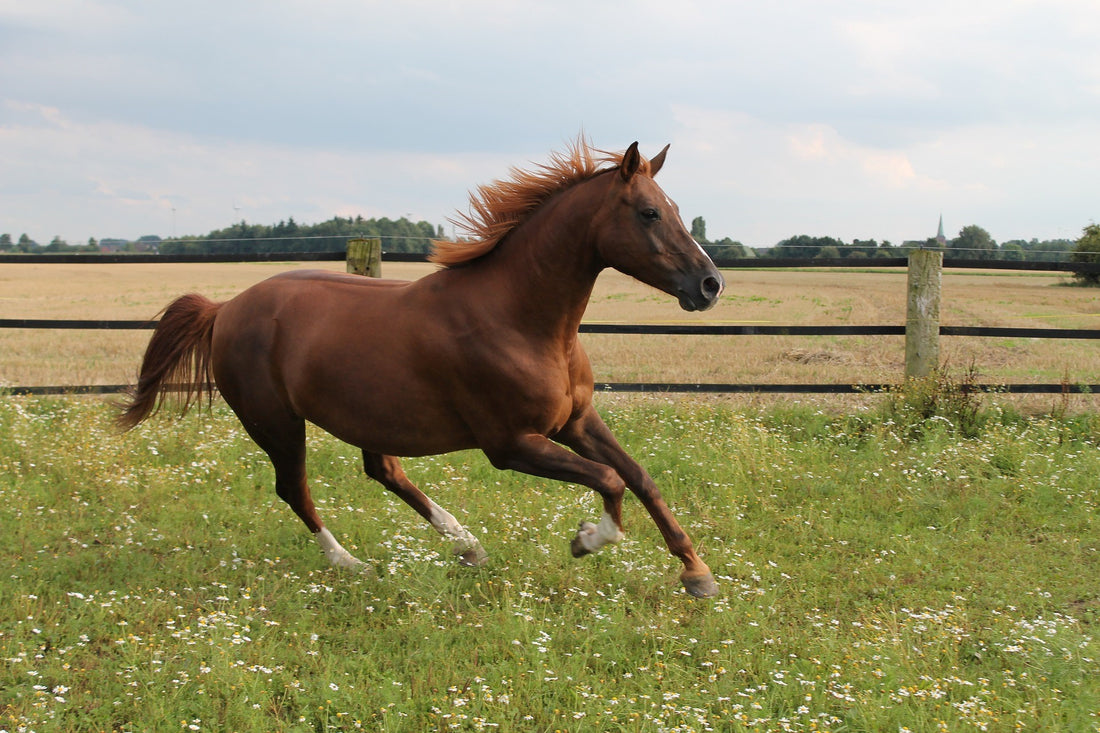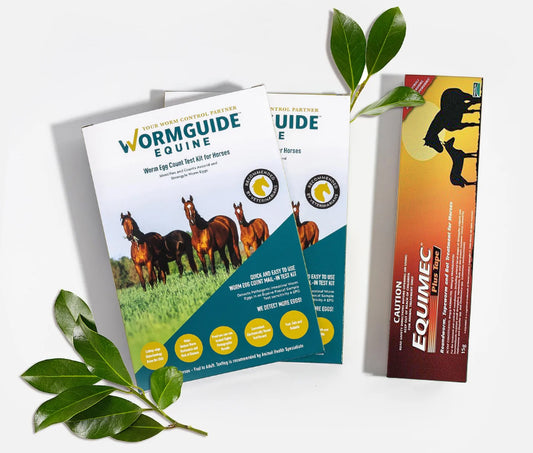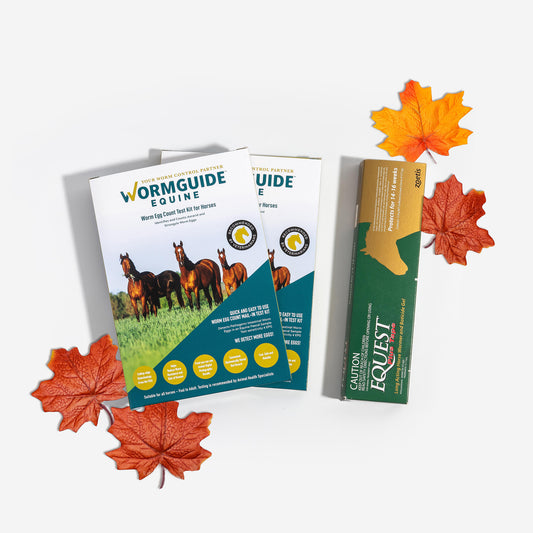I think it was the famous Greek storyteller, Aesop who said, it is possible to have too much of a good thing. As far as I’m concerned, the jury’s still out.
I mean, can you really have too much salted pistachio gelato? Let’s be honest. It’s hard to say, right?
But while the jury still might be out on ice cream, the verdict on horse deworming is definitely in.
And the answer is – yes! You can deworm a horse too much.
Over-deworming is a serious problem and we’ve got some important stuff to say about it.
So, grab a bowl of ice-cream, kick off your boots and put up your feet. Things are about to get a little scary.
What is dewormer resistance?
In medical speak, resistance is the opposition to something, or the ability to withstand it.
In the world of horses, dewormer resistance is the ability of worms to survive horse worming treatments which are usually effective in killing them.
(In the world of ice-cream, resistance is the ability to not eat the whole tub!)
When horse dewormer resistance occurs, parasites no longer respond to horse worming treatments, so they become difficult or even impossible to treat. This is a frightening problem for our horses, on both an individual level and global horse population level. Equine parasitologists are reporting multiple findings of resistant horse worm populations in Australia. Worm resistance is well and truly here.The prevalence of parasitic worm infections is rising and becoming more common as worms grow resistant to our existing worm treatments. This in turn, increases the risk of fatal horse worm associated illness.
Much like the misuse of antibiotics in humans is accelerating resistance to a growing number of infections – like golden staph – over-worming is accelerating dewormer resistance. This is made worse by the fact that many horse owners are still overusing dewormers unaware of the consequences and unaware of the need to actually check that their deworming treatments are actually working.
So, here’s the kicker … if we don’t dewormer rotation (turns out it doesn`t work) … if we don’t stop deworming young and adult horses too much, the speed of dewormer resistance will increase, deworming medications will cease to kill harmful worms (no new deworming medications are being developed) and we will no longer be able to protect our horses. Full stop.
And it gets scarier … recently published research confirming drug resistance to all three classes of dewormers used to treat strongyle horse worms, also illustrates that the global movement of horses has the potential to quickly spread resistant parasite populations. *sigh
Dr Martin Nielsen from the M.H. Gluck Equine Research Center explains new findings here.
Researchers are finding more and more drug resistance to the dewormers we use and the way we use them. A 2021 study conducted on two thoroughbred farms in Australia report multi-drug resistance in small strongyles. It was found deworming too much is the likely reason. Moxidectin was routinely used for at least a year every 8-10 weeks. You can read the article here.

Another scoop of that salted pistachio anyone?
But … the news isn’t all bad.
I’m an optimist and I believe that education and empowerment are the keys to change. I believe that informed horse owners can make all the difference. I believe that even though we can’t reverse resistance on properties and in worm populations already deemed resistant, we can change our deworming habits to protect horses and preserve the susceptibility of our horse worming treatments. And today is the best day to start.
What is the best horse dewormer schedule?
There is no one-worm-program-fits-all approach to deworming. Individualised deworming programs that incorporate a combination of targeted and strategic worm control approaches are the cornerstone of modern worm management. This gold standard approach begins with testing more, treating less and routinely monitoring your horse with worm egg count tests. And with WormGuide getting it right has never been easier.
The current recommended horse worming approach acknowledges that every horse, and their circumstance, is different. Data generated by accurate precision worm egg count testing should be used to guide the right deworming decisions for your horse or your horses.
Listen to Dr Nielsen explain here why routine de-worming at pre-determined intervals, without the use of diagnostic testing is out-dated.
Modern worm control approaches aim to reduce parasite transmission, not eliminate the parasites. (Parasite nuking is out!) Instead, data generated by faecal worm egg count tests is used to find the adult horse that contaminants the pasture with eggs infecting itself and other horses and discover the type of worm your horse has - ascarids, strongyles or both? On top of that worm egg count testing allows you to check that your deworming treatment is working, align your deworming with seasonal parasite patterns for the twice yearly foundation treatments for all horses, give your foals the best start to life and test for resistant worms on your property.
Our hero Faecal Egg Count Test Kit really is the advantage you’ve been waiting for.
After gathering a small sample of manure using our Kit, WormGuiders receive diagnostic information (and exclusive access to a What Do My Results Mean? Guide) to formulate the best worm control strategy for your horse based on their worm type and worm egg shedding levels. We recommend that you involve your vet in treatment decisions.
Winning worm control is not complicated (in fact, with WormGuide targeted deworming is less work, less expensive and more effective) but it does mean being informed and it does mean changing old habits. Horse worms and worm eggs naturally exist where horses graze and cannot be eradicated. Worm free horses are not possible nor are they desirable so we can’t just stick our head in the chaff bag and hope for the best.
Taking full advantage of an evidence-based approach to worm control means only worming when necessary with medications that you know are still effective on your property with our Gold Standard Resistance Service.
What time of the day is best to deworm a horse?
Many people ask us what time of day they should deworm, when really, we think the more important question is: what time of year should I deworm my horse? The time of day you administer a worm treatment does not have any influence on the effectiveness of deworming.

Best practice guidelines recommend that basic foundation deworming treatments be administered every 6 months (usually spring and late autumn in most climatic regions) as a foundational worm security measure for all horses. The results of your seasonal deworming worm egg count tests will help you unpack your horse’s unique risk profile and worm egg shedding level (ie…how many eggs they have per gram of manure) to customise a worm control plan and determine if additional treatments are required.
We recommend that you checkout The Autumn and Spring Advantage Sets here for more strategic seasonal deworming information.
What can you expect after deworming a horse?
You can not expect that just because you have administered a horse wormer it will successfully treat the worms in your horse. You can expect that you will need to check for worming failure 10 – 14 days later.
Let me explain.
In the age of wormer resistance, we can’t assume that horse worming treatments will always work. It is impossible to effectively deworm your horse without checking for treatment success. The Truth Teller Test, 10-14 days after administering your deworming treatment will check to see if it really did kill the egg laying worms or if the wormer treatment failed.
If your test results indicate that there are still horse worm eggs in your horses’ manure, then you must investigate … something is up. Did you select the wrong dewormer? Is it out of date? Or are these results an indication of something sinister happening on your property? Remember it is not biologically possible to have resistant worms in some of the horses in your herd and not others. Further investigations will be required. Our vet Dr Charlie is always on stand by to help you with any questions you may have.
If you are new to WormGuiding, evidence-based deworming post-treatment tests are a great place to start. Try our The Truth Teller Test (really, it will change your horse worming game!). Get deworming peace of mind.
No more deworming in the shadows
No more deworming in the shadows. We need to bring horse deworming practices into the limelight. Better horse health outcomes are possible when we gather credible data, share credible information and encourage dialogue to keep discussions about best practice horse worming in the public eye. We always recommend having important conversations with industry professionals. We always recommend consulting your vet or taking advantage of our complementary customer-only vet consultancy service and chatting with our resident vet Dr Charlie, for treatment advice.
So how are you feeling? Are you deworming your horse too much?
We hope this blog has answered your burning questions and inspired you to avoid the overuse of horse wormers.
Researchers (Stratford et.al., 2014) found the use of worm egg counts for adult horses reduced deworming medication use by up to 75% and we love that for both our horses and our environment.
If we work together to make sure we don't deworm too much we will slow resistance and improve horse health outcomes on our farms and around the country. So spread the word. Don’t leave it until it’s too late.
You can deworm a horse too much.
Ice-cream on the other hand … hmmm … what do you think?
Why not visit our socials to tell us your favourite ice-cream flavour!
Treat your horses right with WormGuide.
Find out more here about the advantages of our precision worm egg count testing service and science-based worm control solutions.
Buy our custom-made, bio-safe faecal sample Worm Egg Count Test Kit here to give your horses the ultimate protection from intestinal worms.
PS - Don't forget to sign up to our newsletter here for the latest worm control news, equine industry insight and healthy horse inspiration. Join the movement protecting our horses future.
Best, Larissa and Team WormGuide.












